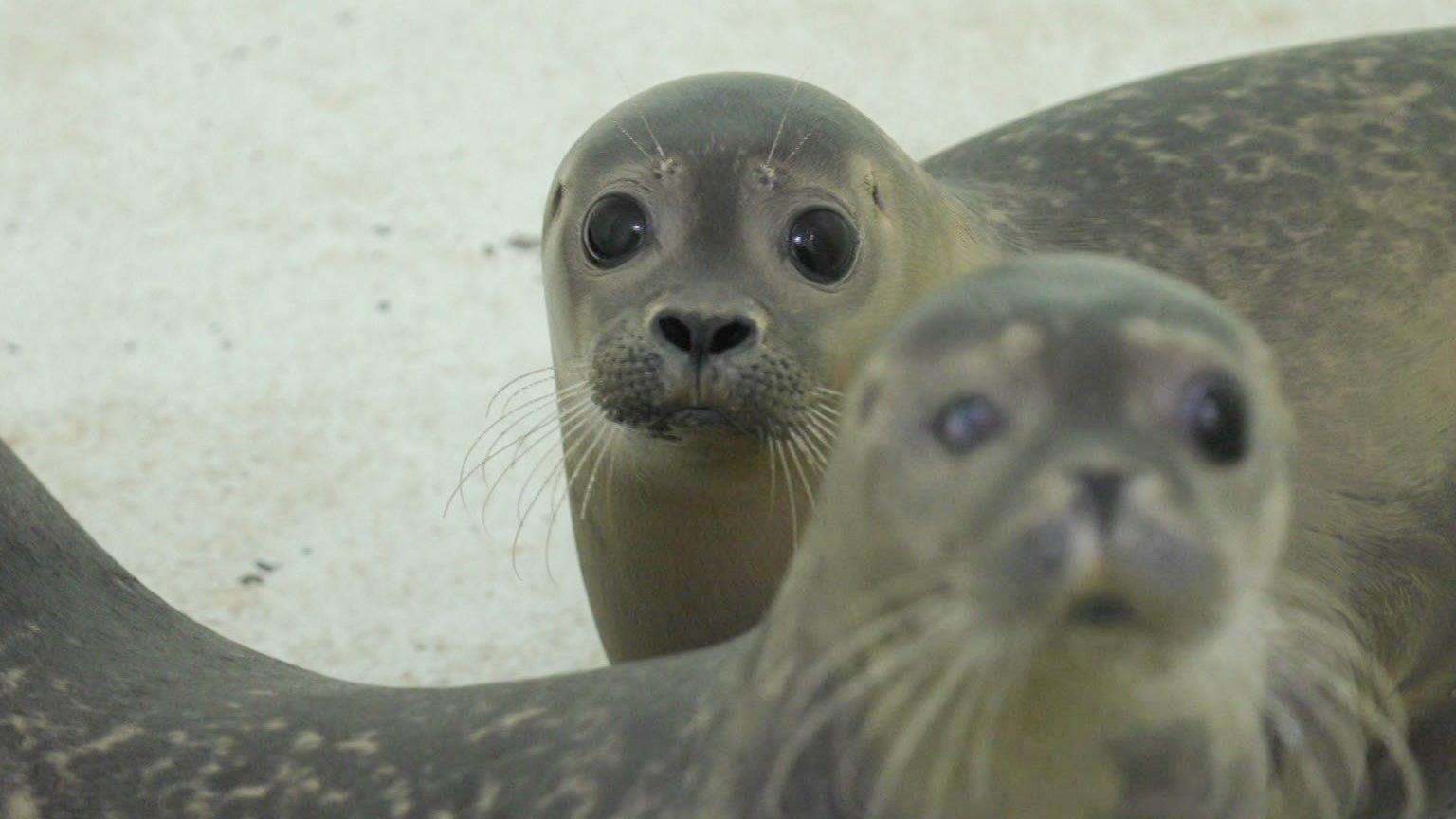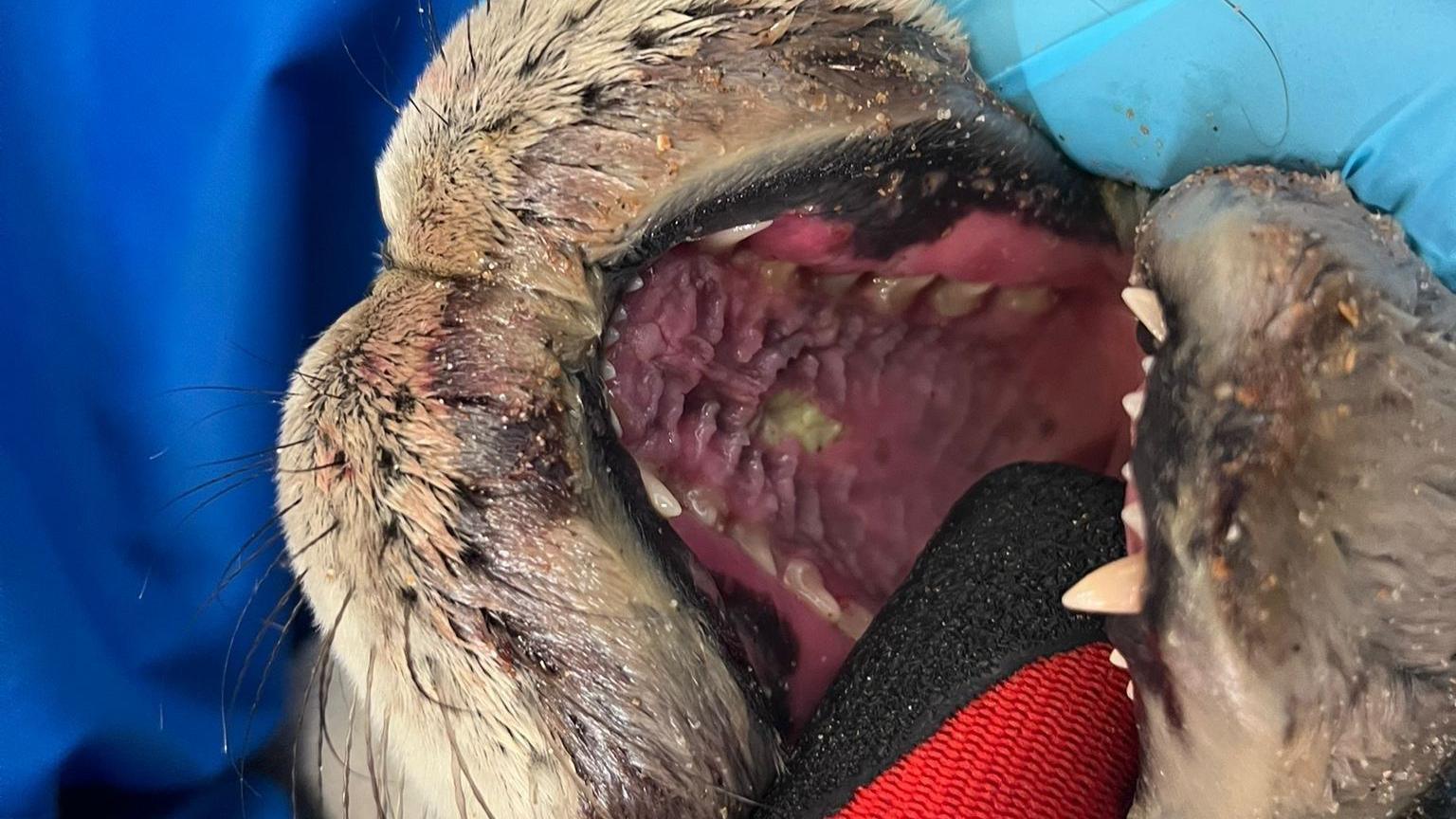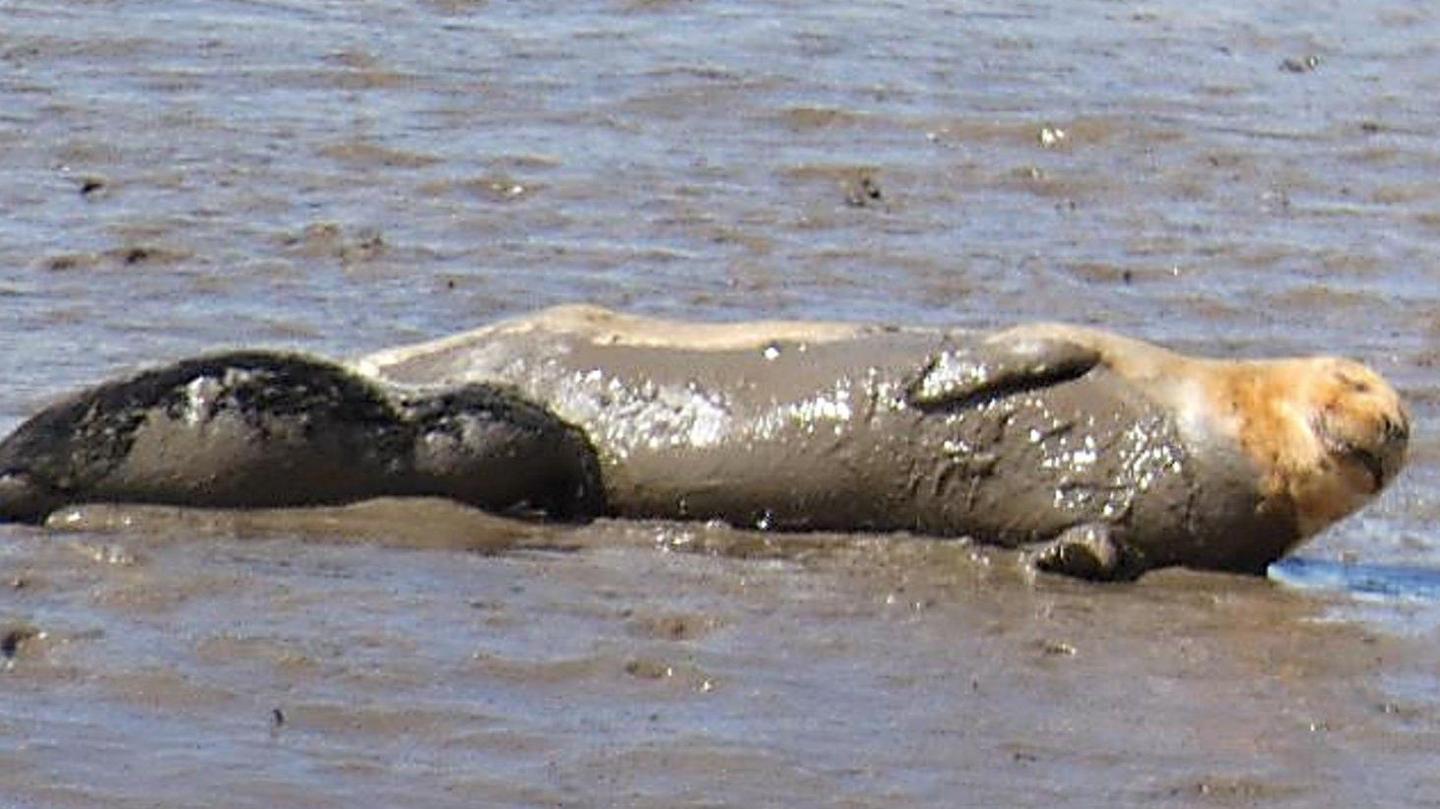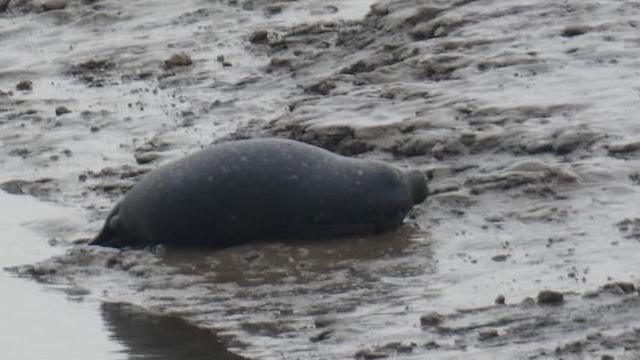Mouth rot study offering hope for seal pups

Olive and Pebbles have just been released back into the North Sea after months of care
- Published
Researchers are hoping to save more seal pups by discovering the cause of a deadly disease.
An investigation is being led by a team from north-east England into mouth rot, an infection that has become an increasing threat to common seals along Britain's coast - and early findings are promising.
At Tynemouth Seal Hospital, two pups, Olive and Pebbles, have just been released back into the North Sea after months of treatment for the condition.
Charity chair and lead volunteer Richard Ilderton said: "When Pebbles came in she weighed just 9kg (20lbs) and Olive was only 10 (22lbs) - they're now over 30kg (66lbs) and ready to head back out into the wild where they belong."
The pair arrived at the centre in July suffering from severe swelling and infections linked to mouth rot.
Ashleigh Bell, the displays supervisor at Tynemouth Aquarium, which runs the seal hospital, said seeing the seals released was a "brilliant feeling".
"You don't always know if a pup will make it to release, so when they do, everyone's just so happy.
"It's the real reward for all that rehab work."

Ashleigh Bell said seeing the seals be released was a "real reward"
Cases of mouth rot have been rising since 2017, with pups suffering from ulcers, abscesses, and facial wounds, according to the British Divers Marine Life Rescue (BDMLR) charity.
Many seals are rescued along England's east coast, from Northumberland to Norfolk, though similar outbreaks have also been reported in Scotland and Ireland.
The BDMLR is leading the five-year investigation, alongside Teesside University and the Cetacean Strandings Investigation Programme, with support from the Department for Environment, Food and Rural Affairs (Defra).
It hopes to identify the cause of the condition and attempt to understand why case numbers have increased and how to better care for affected pups in rehabilitation.
Warning - this article contains a graphic image of a seal suffering from mouth rot
Until recently, it was believed the disease developed when young seals mouthed rough surfaces as they learned to forage, but researchers are now investigating whether there is a viral or bacterial component.
The study has been working closely with Tynemouth Seal Hospital, a link Mr Ilderton said was helping uncover the root of the problem.
"It'll find the definite cause and improve how we treat it. We've already had good successes, and I think we'll come out the other end of it," he said.

Mouth rot has been plaguing seals along the coast
For the team in Tynemouth, every release is a sign of progress.
"They come in weak and flat, and a few months later they're ready to go back out and repopulate," said Mr Ilderton.
"You get a little tear in your eye, it's why we do it."
The centre expects to release another recovering seal, Popeye, in the coming weeks.
Popeye, from Teesside, was treated for severe mouth rot and is now nearing the end of his rehabilitation.
He had one eye removed but is expected to adapt well in the wild, using his whiskers to navigate.
People who find a seal pup in distress are urged to keep dogs on leads, maintain a safe distance, and call the BDMLR on 01825 765546 for advice.
Follow BBC North East on X, external, Facebook, external, Nextdoor and Instagram, external.
Get in touch
Do you have a story suggestion for BBC Tyne?
- Published16 September

- Published18 September
